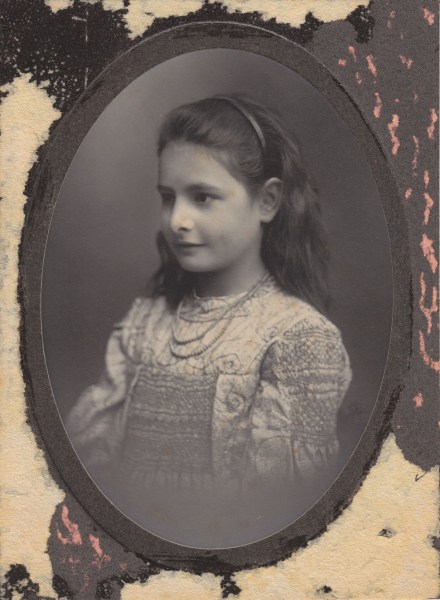These days, education can be an international affair. The University of Birmingham attracts around 10,000 international students from across the globe and with plenty of study exchange opportunities, students can discover a different academic environment and immerse themselves into a completely new culture.
This cosmopolitan approach to learning is nothing new. After the Nettlefolds’ eldest daughter Evelyn had completed her education at Edgbaston High School, she was sent to France to pursue further education.
Her letters from Paris give us a fascinating glimpse into the journey of a young girl growing more independent, and gaining an education in more ways than one…

At the Lycée in Paris, Evie studied a wide range of subjects including psychology, history, literature, languages, and music. She wrote to home about every aspect of her life, even analysing the way in which teaching was delivered. “Their method of teaching is quite different…the mistress here prepares the character of Dante, & gives it you before you read the work; the history master writes out a plan first on the blackboard & then expatiates on the different points…everything here is done for one, all the true preparation in fact.” (19 October 1910). She clearly felt that she was being ‘spoon fed’, and said that she much preferred the teaching at Edgbaston High School, where, presumably, more independent thought was demanded of the pupils.


Parisian life offered some unusual spectacles. “An aeroplane came sailing round after tea & we all dashed out onto the balcony & watched it slowly descend, slowly and quietly. Then, as I was beginning this page…another aeroplane, or the same one, came down the other way. They both disappeared behind the big block of buildings in front of us.” (19th October 1910). Evie and her friends took the opportunity to see the sights. “After the Panthéon we took a rattling horse-bus, which took us through many little streets, past old houses, & over cobbles and past the Odéon to the Madeleine.” (1st December 1910).


While Evie was growing up, she would have been exposed to plenty of political discussion. As a 17-year-old living abroad for the first time, she was ever alert to issues that would interest her parents. After commenting with considerable insight upon the French rail strike in 1910, she described her classroom in the Lycée, even drawing a diagram to demonstrate its light and airy atmosphere. “Father would be delighted with the amount of light & air, & the height of the rooms & the general air of fitness & cleanness. He would also be pleased that everyone can see trees from their classroom, & that nevertheless the light is not blocked out by them.” (19th October 1910).


Even her visit to the great department store Bon Marché reminded her of her father’s interest in cooperative schemes: “Bon Marché…is a cooperative shop. All the employees are good, & the tone of the shop is excellent. The founder made a fortune, &…the sellers, also make small fortunes in it. There is a triumph for our cooperation, Father?”
Evie also took the opportunity to experiment with photography. After buying a ‘Kodak’, she and her friends headed for the Bois de Boulogne. “Of course, it drizzled, but we set out all the same. We planted the tripod…by a little path on the far side of the big lake, near a bridge, & opened an umbrella over the apparatus. A young dog, out for his constitutional with his master, barked at us in astonishment…He was perplexed by the strange combination of Kodak, tripod & umbrella, & three sombre individuals. They then planted me on the bridge, & photographed the whole.” (2nd March 1911)


 18°C
18°C

